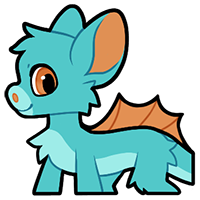Traits
Spines (Unusual)
Spines are a somewhat uncommon trait for a Xero to have; these keratinous protrusions are hard, shiny, and slightly translucent, just like the Xero's claws. Spines can be many different shapes and lengths, and can be present on the body of a Xero. Spines are often found on the back, tail, cheeks, or nose, as well as other places such as the back of the limbs. They cannot be placed on the forehead area of a Xero, see the Horns trait instead.
Bioluminescence (Special ✨)
Bioluminescence is a very rare trait sometimes observed on Xeros. Chemical reactions within the cells of these Xero's skin produce a vibrant glow that they can control at will; however, the original function of this adaptation is currently unknown. Xeros that are bioluminescent feature some or all of their soft tissues that can glow! Xeros with this trait may also have very saturated, neon-colored skin.
How To Use This Trait
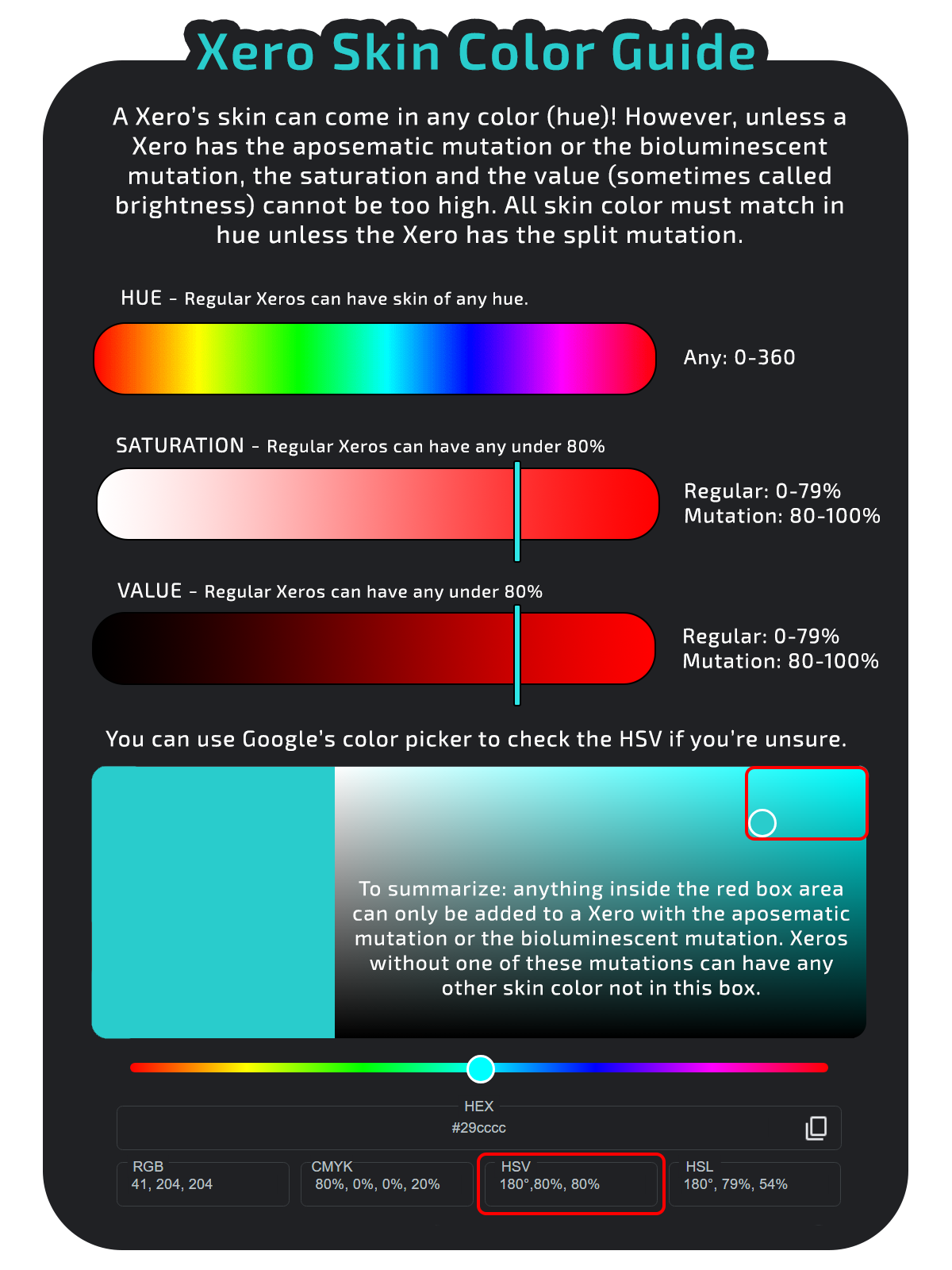
 DO: Bioluminescent Xeros can have a skin color that is within the red box area of the color chart (saturation & value above 80%). However, their skin color may be more dull than this if desired. Xeros with this trait can control their glow at will, but it must be visible for the Masterlist image.
DO: Bioluminescent Xeros can have a skin color that is within the red box area of the color chart (saturation & value above 80%). However, their skin color may be more dull than this if desired. Xeros with this trait can control their glow at will, but it must be visible for the Masterlist image.
 DO NOT: Xeros without the bioluminescent (or aposematic) mutation should not have a skin color within the red box area of the color chart.
DO NOT: Xeros without the bioluminescent (or aposematic) mutation should not have a skin color within the red box area of the color chart.
This trait can be added to your Xero by giving them a Lantern Fruit.
Click the magnifying glass above for examples of this trait! 🔍
Woodland Pads (Woodland)
Flat pads that cover the entire palm and sole of their paws allow Woodland Xeros to grip onto bark and foliage with ease while climbing, allowing them to get to higher elevations quicker. These pads are covered in the same setae as standard Xero paws, but the higher coverage gives them enhanced grip.
Marine Fins (Marine)
Marine Xeros can have fins of any sort on various parts of their bodies. Fins can include whale-like dorsal fins and flukes, shark or fish-like tails, or any other sort of webbed fin. Fins can be located on their backs, tails, backs of their limbs, or even in place of their ears, if also given the Marine Ear trait.
Horns (Notable)
Horns are a rare trait for a Xero to have; these keratin-covered bones grow in pairs from the top of the Xero's head. Much like the antennae, horns can be many different shapes and lengths. Horns can only be found in symmetrical pairs and only on the top of the Xero's head; for keratinous growths on other areas of the Xero's body, see the Spines trait.
Mushroom Growth (Glitched)
The result of recent cutting edge medical development; it is now known that XNA allows for the dynamic integration of even fungal genes. The mycelium and nerve network of the two organisms combines at the genetic level, forming a highly integrated symbiotic relationship, possibly becoming part of the Xeros tissues or even thoughts. This trait causes mushrooms to grow out of the Xero's body. A single mushroom may not exceed 25% of the Xero's body size.
Warning: this is still highly experimental, results my vary.
Extra Body Parts (Glitched)
How did that happen?! Xeros aren't normally supposed to have more than two arms, two ears, two eyes, and one tail, but this mutation is anything but normal. By using a Glitch Vial on a Xero that has the "Glitched" status, you can add one extra pair of something normally found in pairs (such as an extra pair of ears or an extra pair of arms) or one of something normally only found once, like one extra tail. To add more, you will have to use more glitch vials! Please see below for important trait information.
How To Use This Trait
 Do
Do
- At this time, this trait can only be used to add the following: extra eyes, extra ears, extra arms, extra tongues, or extra tails / split tail tips.
- Extra eyes can be added 2x with Glitch Vials for a maximum of 6 eyes total. Xeros with more than 4 eyes will be censored on the Masterlist with a warning for Body Horror.
- Extra ears can be added 2x with Glitch Vials for a maximum of 6 ears total.
- Extra arms can be added 2x with Glitch Vials for a maximum of 6 arms total. Extra legs cannot be added.
- Extra tongues can be added 2x with Glitch Vials for a maximum of 3 tongues total.
- Extra tails can be added 2x with Glitch Vials for a maximum of 3 tails.
- Split tail tips can be added to each tail, for a maximum of 3 tails each with a split tip.
 Don't
Don't
- This trait cannot be used to add things not on the list, such as extra toes, extra nostrils, extra legs, extra heads, etc.
- Extra body parts can only be added to areas they would normally found. For example, extra eyes must be on the face, and could not be added to the legs, extra arms can't be put coming out of the tail, etc.
This trait can only be added by using a Glitch Vial on a Xero that has the "Glitched" status.
Click the magnifying glass above for examples of this trait! 🔍
Saber Fangs (Seasonal)
Saber fangs are a very rare mutation to see on a Xero. These long canines protrude much further from the Xero's mouth than is normal for their species. This can give them a rather intimidating appearance!
Slimy Skin (Seasonal)
It is very rare to see a Xero with slimy skin. Xeros with this trait have extra slimy skin, coated with protective mucus. The slime only affects areas of visible skin, such as their inner ears, paw pads, and tongue. This trait could be combined with the Hairless trait to have slimy skin on other areas of the body.
Retractable Claws (Standard)
Some Xeros may have retractable claws; however this is a not a common adaptation. These claws are slightly more pointy than the standard Xero claws, but are otherwise exactly the same when not retracted inside. When not in use, they just show up as simple slits on the paws, sometimes hidden by the fur.
If a Xero gains the Savannah Hooves trait while having Retractable Claws already present on the Xero, the limbs that turn into hooves will lose retractable claws. However, if the hooves are ever removed on a redesign, the user is always allowed to "bring back" their Retractable Claws on their Xero.
Dazzle (Special ✨)
Eating a certain berry can trigger the skin of a Xero to build new amino structures, mimicking the microscopic elements present in the jewel berry and presenting a metallic like sheen similar in refractive performance. This rare mutation gives Xeros the dazzle trait; shiny, metallic, or glittery flesh, presenting itself on the insides of their ears, tongue, paw pads, and pouch. It can also sometimes give them glittery or shiny markings in their fur!
Jungle Patagia (Jungle)

Jungle Xeros can have patagia - that is, loose flaps of skin connecting from each wrist to hip. These patagia allow the Xeros to glide short distances, such as from tree to tree, or slow their fall like a parachute. Much like the patagia of a flying squirrel, they are extended with the aid of specialized wrist bones and the loose skin can fold up against the body when not in use.
Jungle Camouflage (Jungle)
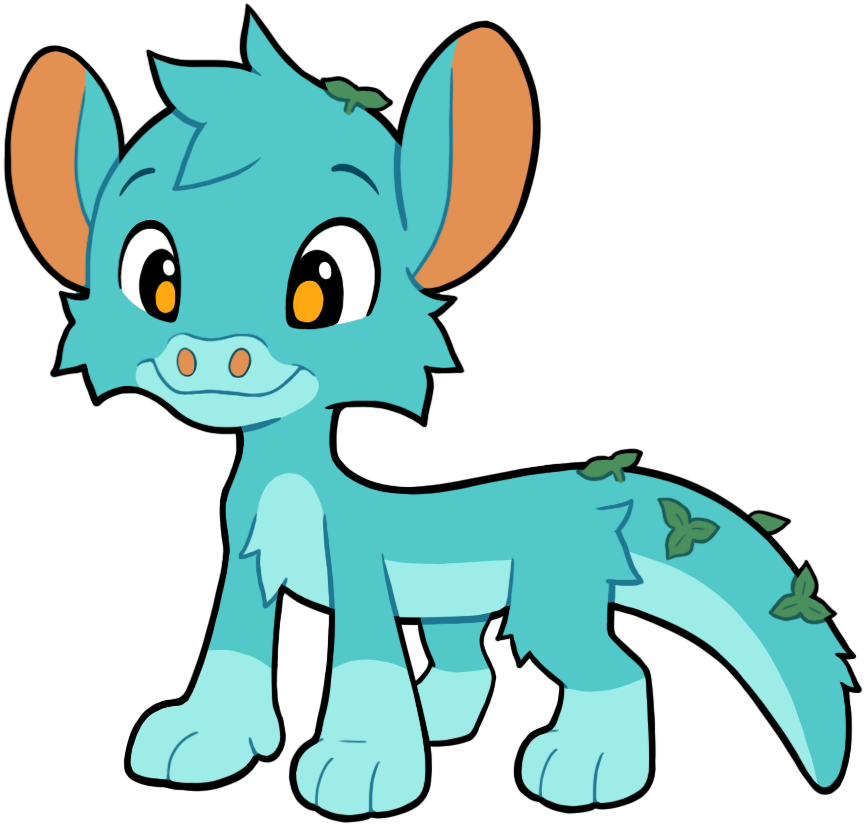
Jungle Xeros can be mixotrophs, that is, they can grow plant structures to photosynthesize! This includes things such as small leaves and flowers, which can be located anywhere on the Xero's body. This also helps them blend in with their leafy surroundings. A single plant may not exceed 25% of the Xero's body size.
Antennae (Standard)
Antennae are the most common trait displayed by Xeros. These sensitive feelers enhance a Xero's senses and help them navigate in difficult environments. The antennae can be many different lengths, and can be present on the head, back, tail, or on the cheeks like "whiskers".
How To Use This Trait
 Do
Do
- A Xero's antennae are always soft, flexible, and tube-shaped.
- The tips of antennae may be rounded, bulbous, heart-tipped, curled, etc.
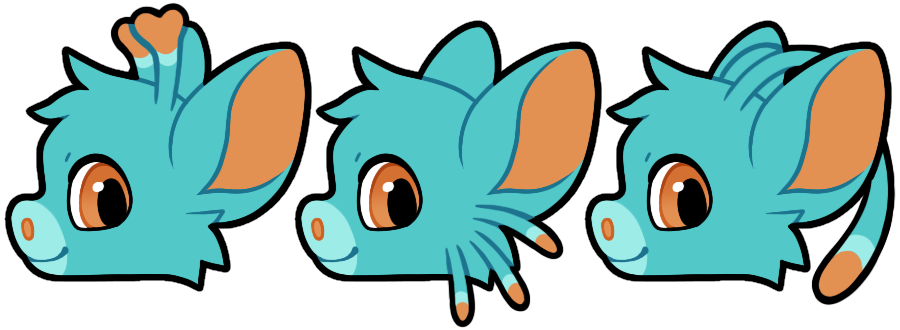
 Don't
Don't
- Xero antennae are never fluffy or densely furred.
- Insect or moth-like antennae are not included under this trait.

This trait can be added to your Xero by giving them a Ru Berry.
Click the magnifying glass above for examples of this trait! 🔍
Ornamental Tail (Seasonal)
Ornamental Tail is a rare mutation observed on Xeros. This is a fancy tail tip made of hard keratin or cartilage. It can be almost any shape, as long as it’s placed on the end of the tail!
Woodland Tail (Woodland)
A Woodland Xero's long tail is the perfect counterweight to help them balance up in the trees. They're also extremely handy in helping them wrap around tree trunks and branches when climbing. While useful for traversal, some Woodland Xeros have found that it can cause quite a tripping hazard in their day to day lives.
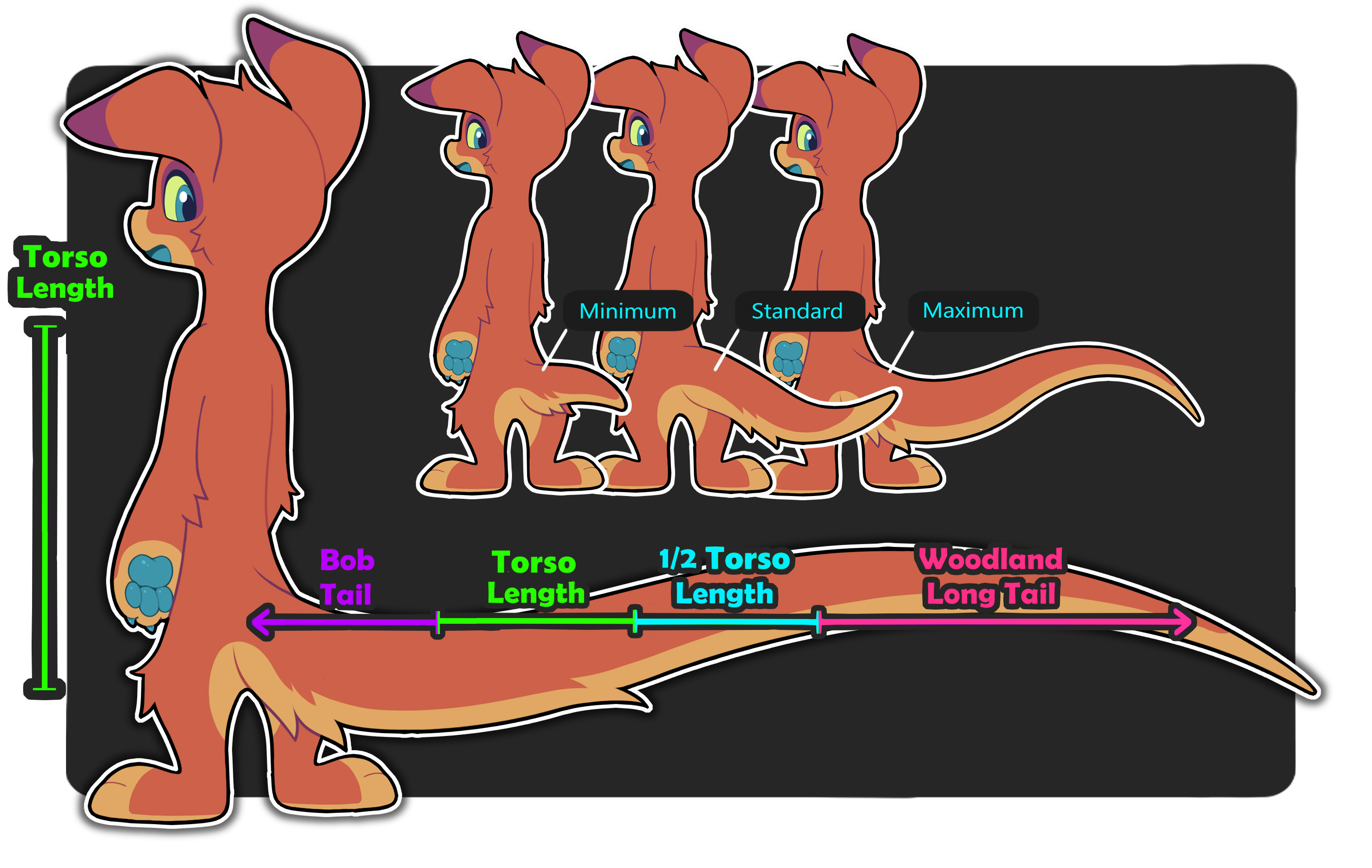
Standard Xero tails can vary in length, with most being about the same length as their body. Anything longer than 1.5x the length of the Xero's torso would need to be defined as a Woodland Tail*. Anything shorter than half of the Xero's torso length would need the Bobtail trait instead!
A Xero's torso can be measured by drawing a line from the top of their shoulders to the crotch.
*This is subjective as not all art styles will be drawn with the same torso length. Ultimately, whether or not a Xero should have the Woodland Tail trait is up to staff discretion.
Prehensile Tail (Unusual)
Xeros can have all sorts of tail shapes, but prehensile tails are quite rare. This type of tail acts as a fifth limb, allowing the Xero to hold on to other objects or aid in climbing. When not in use, they hold their tails coiled tightly in a spiral, usually facing down.
Bobtail (Notable)
Bobtails are a somewhat unusual mutation to see on a Xero. These tails are naturally short, and can be various shapes such as super short nubs, or fluffier bunny or deer-like tails.

Standard Xero tails can vary in length, with most being about the same length as their body. Anything longer than 1.5x the length of the Xero's torso would need to be defined as a Woodland Tail*. Anything shorter than half of the Xero's torso length would need the Bobtail trait instead!
A Xero's torso can be measured by drawing a line from the top of their shoulders to the crotch.
*This is subjective as not all art styles will be drawn with the same torso length. Ultimately, whether or not a Xero should have the Woodland Tail trait or Bobtail trait is up to staff discretion.
Plume Tail (Unusual)
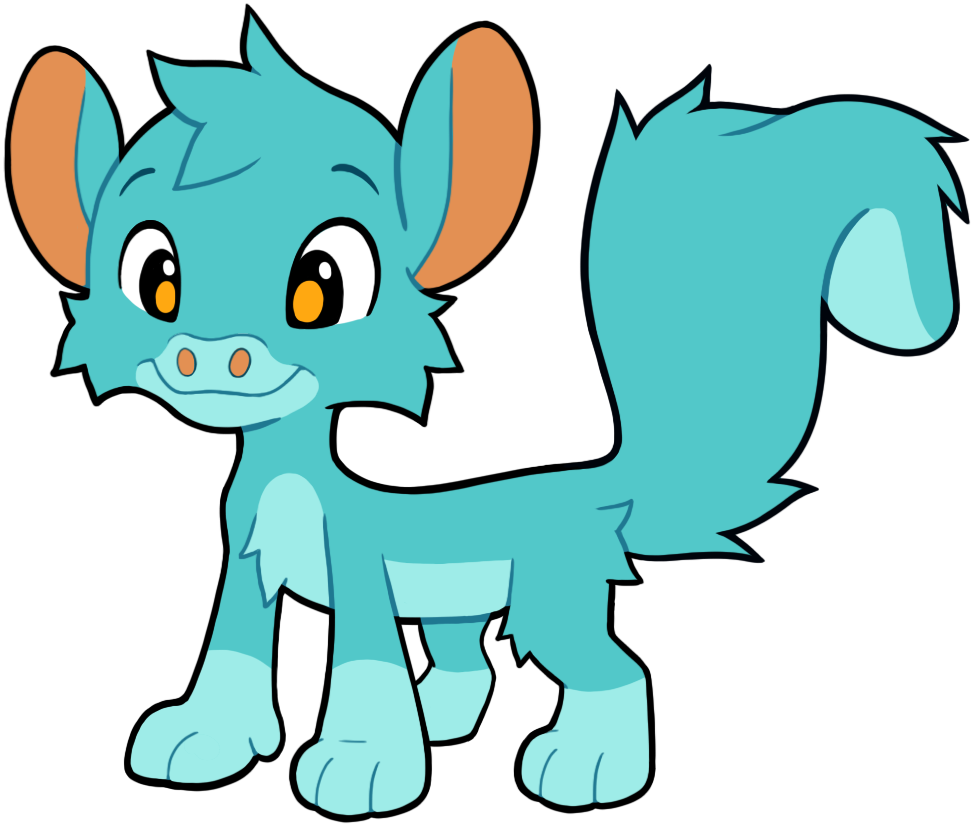
Plume tails are a somewhat unusual mutation to see on a Xero. These tails are are very flat and wide and can be smooth like a beaver's tail or long and fluffy like a skunk or squirrel's tail.



